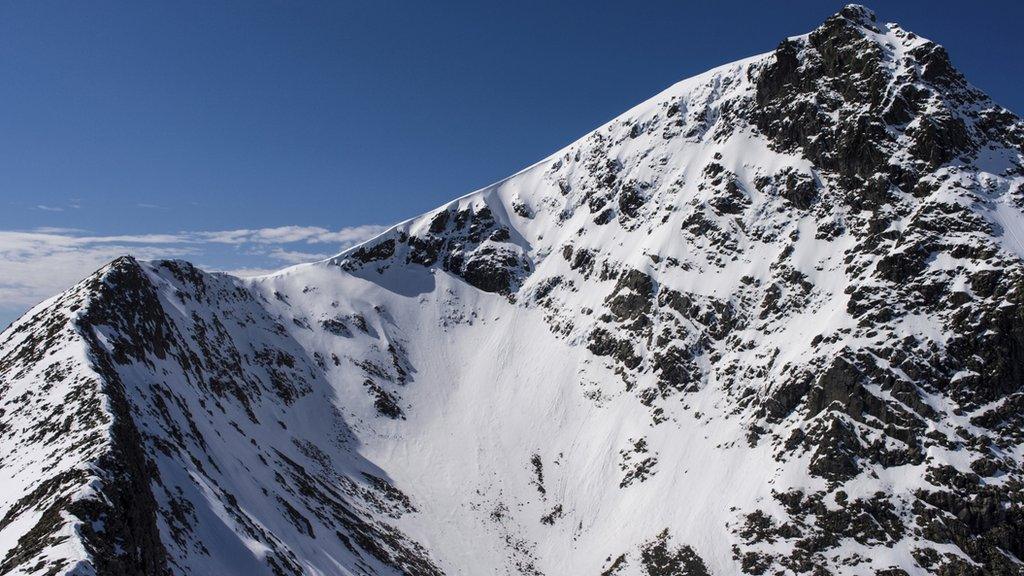Mountain rescue row as teams plan to leave official body
- Published
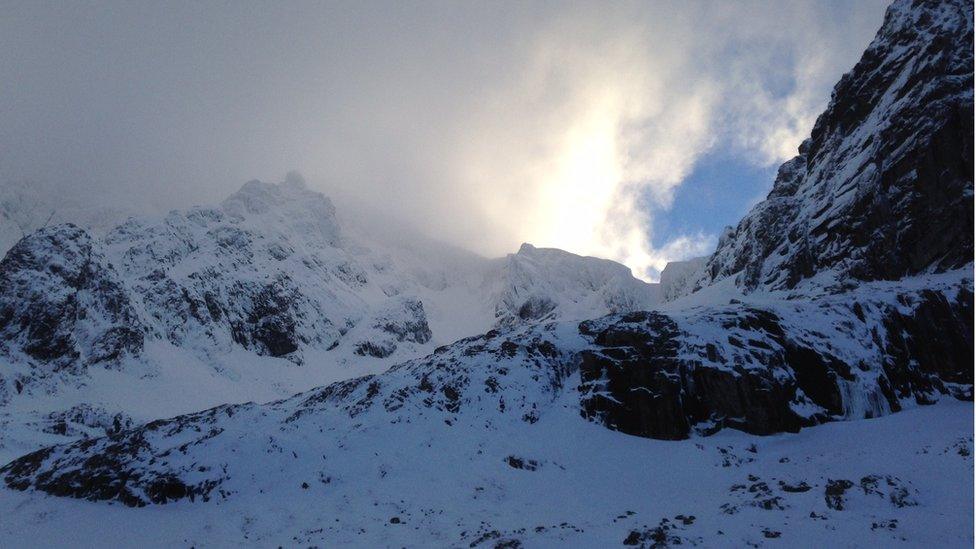
The Lochaber Mountain Rescue Team carried out 130 rescues in 2015 - many of them on Ben Nevis
Scotland's three busiest mountain rescue teams have said they intend to leave the body which has co-ordinated the service for 50 years.
The Cairngorm, Glencoe and Lochaber teams said they had lost faith, external in Scottish Mountain Rescue (SMR) as their representative body.
The three teams believe there has been a shift away from mountain rescue to urban work and community support.
An SMR spokesman said mountain rescue remained its "primary focus".
The organisation's acting chairman, Steve Penny, told BBC Scotland the three teams' decision would have no impact on rescue provision as every team was a charity in its own right.
The Cairngorm, Glencoe and Lochaber teams wish to remain affiliated with SMR but would no longer be full voting members.
The decision on whether they can remain affiliated is up to the other 24 rescue teams that are members of SMR - an organisation founded in 1965 to represent and co-ordinate mountain rescue in Scotland.
It will also require a change to the SMR's constitution, which currently states that non-voting members cannot be considered mountain rescue teams.
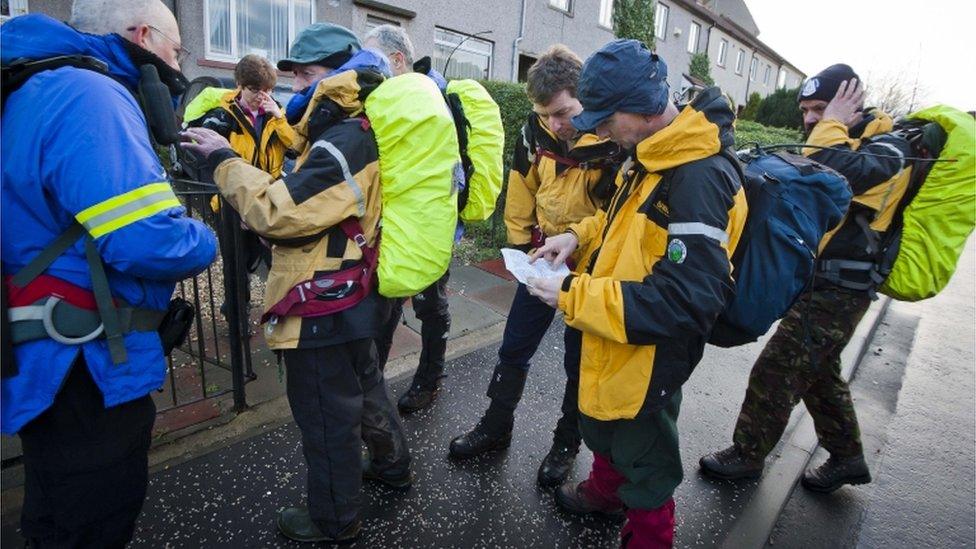
Many rescue teams now get involved in searches in urban areas
The body distributes the £312,000 mountain rescue grant, external from the Scottish government which is divided up between the teams.
Miller Harris - the spokesman for the Cairngorm, Glencoe and Lochaber teams - said he accepted that losing voting rights would mean they would no longer have as much of a say in national issues, including the government grant.
He told the BBC: "All the hassle that goes with a strategic organisation is not worth it with the amount of money that filters down. We're just fighting for crumbs."
Mr Harris is secretary of the Lochaber team which currently receives the largest grant - worth £24,000 a year - and is the busiest team, with 130 rescues in 2015.
The three teams believe SMR no longer represents them, saying it is now concerned more with supporting police in urban searches and providing community resilience support.
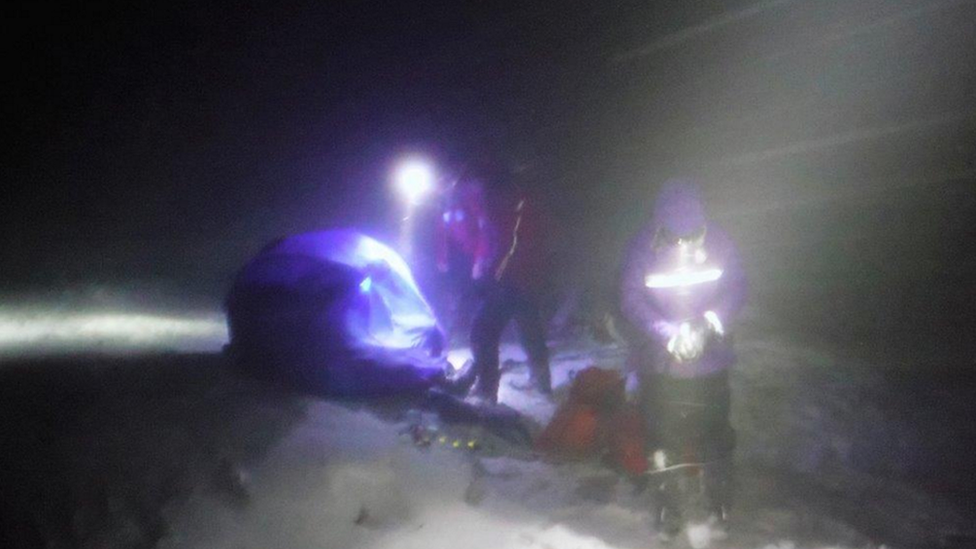
SMR said the primary focus of the organisation and all teams in Scotland continued to be mountain rescue
"I have the utmost respect for the recent work done by teams during flooding in Hawick and Lockerbie," Mr Harris said.
"It's a fantastic service, but it's not what we do. What I can offer is 20-plus years of experience at the sharp end on Ben Nevis."
He added: "We deliver a world class mountain rescue service at virtually no cost to the public purse. We just want to get on with that.
"None of this will make one jot of difference to what we do and how we deliver it. All three teams will continue to offer their resources."
The decision by the three teams to withdraw as full voting members of SMR came about after a proposal by them to split the body into "Scottish Search and Rescue" and "Scottish Mountain Rescue" groups was rejected.
Members of other teams in Scotland told the BBC privately they were "shocked" and "baffled" at the decision.
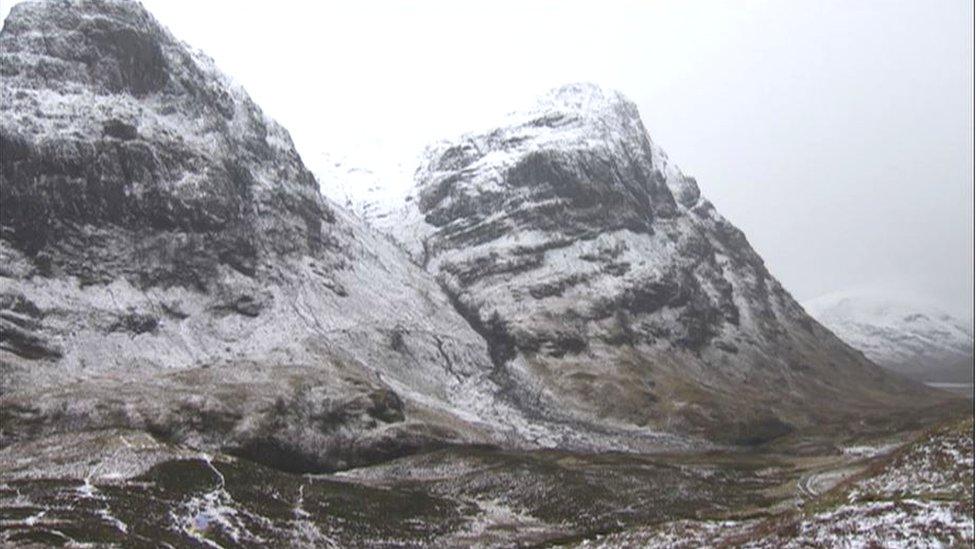
The Glencoe, Lochaber and Cairngorm rescue teams are the three busiest in Scotland
And the leader of Ochils MRT, Kevin Mitchell, said "strenuous" efforts had been made to persuade them to stay.
"From my point of view, I'd like to think that we can engage in further dialogue to keep the status quo," he said.
The Glencoe, Lochaber and Cairngorm teams officially remain members of SMR until 1 April but have withdrawn from any discussion about their decision to leave.
Mr Penny, SMR's acting chairman, said mountain rescue remained the primary concern of his organisation and all teams in Scotland, despite many getting involved in other activities.
"I don't believe that there's a team in Scotland who would not turn out to support local communities if asked," he said.
"It would be wrong to say we wouldn't use our skills and equipment to support them. Teams have evolved into their areas to support local communities in lots of different ways."
Mr Penny, a member of the Tweed Valley team, denied there was a "split" in the organisation and said he wanted to use the issue to work out how the SMR should "face the next 50 years".
"We would not want to exclude [the three teams] in any way. Mountain rescue is a community and to pretend these teams don't do mountain rescue would be daft. We all just want to save lives," he added.
"It's just a question of working out what the structure of the organisation is moving forward."
- Published18 January 2016
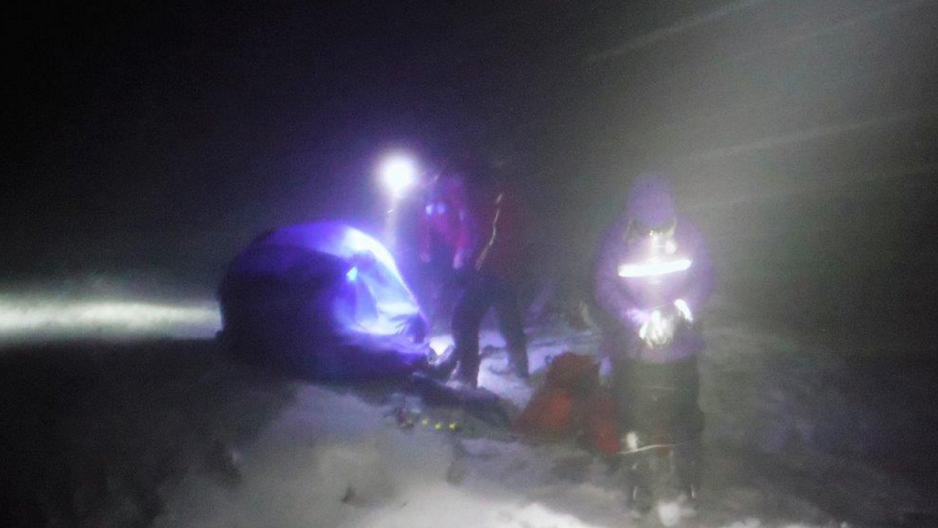
- Published18 January 2016

- Published14 January 2016
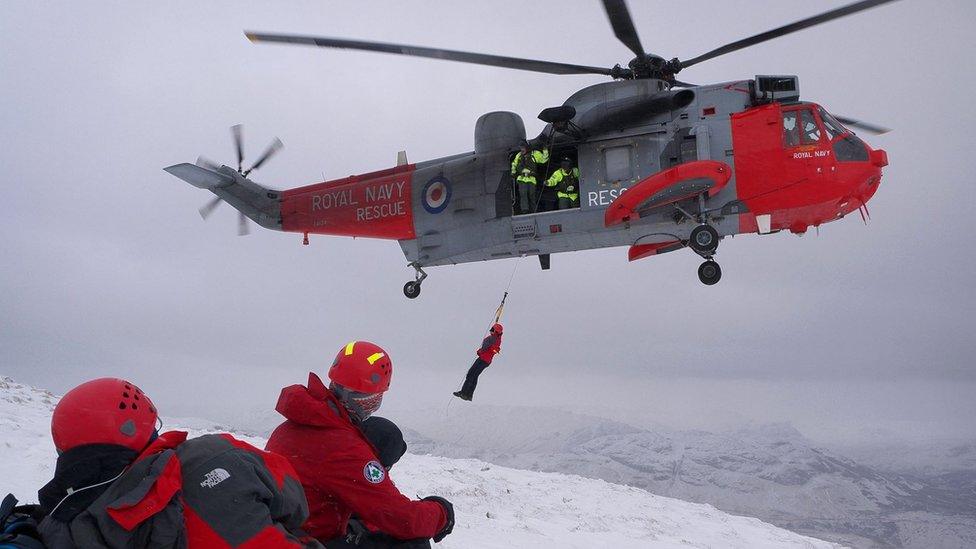
- Published26 February 2015
